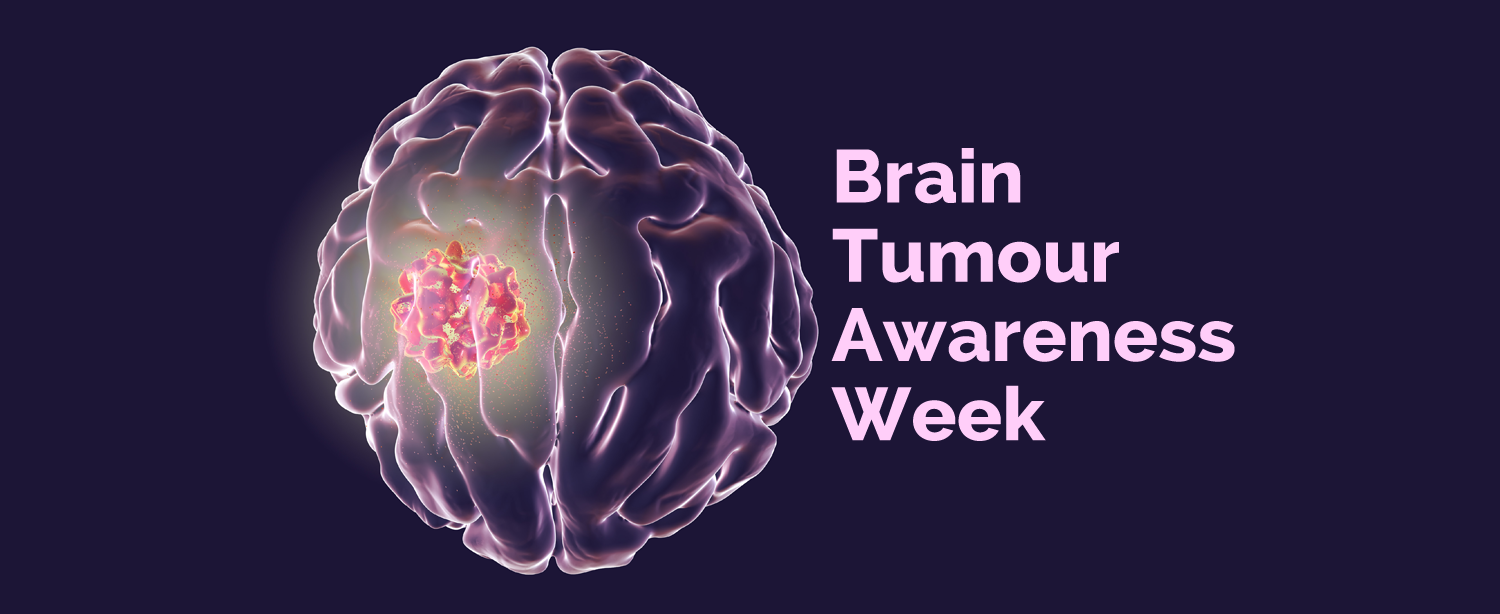A brain tumour is an abnormal growth of tissue in the brain or central spine that can disrupt proper brain function. There are two main types of tumours namely, malignant and benign(non-malignant) tumours. Benign brain tumours are non-cancerous, while malignant primary brain tumours are cancerous, globally less than one-third of brain tumours are cancerous. This disease can occur at any age. The incidence of this neurological disorder in India ranges from 5 to 10 per 100,000 population with an increasing trend. Twenty percent of these cases are seen in children. Increasing the awareness, busting the many myths, early diagnosis and timely treatment is the right way to fight brain tumour.
Symptoms of Brain tumour
The following is a list of common symptoms which, alone or combined, can be caused by a brain tumour (malignant or non-malignant):
- Headaches-early morning headache
- Morning nausea and vomiting
- Behavioural changes
- Cognitive changes
- Dizziness or unsteadiness
- Speech disturbances
- Double or blurred vision
- Hearing impairment
- Seizures
- Weakness or Paralysis
Myths and facts of Brain tumour
Brain tumour is one of the most challenging and complex cancers and needs a multidisciplinary approach for treatment and recovery. Myths and misconceptions about brain tumour, its risk factors, how it spreads, and treatment options are widespread. Let us break down some of the most common myths and misconceptions about brain tumours:
- Myth 1: All brain tumours are cancerous.
Fact: Only one-third of brain tumours are cancerous. Most of the non-cancerous brain tumours can be treated completely.
- Myth 2: Brain tumour always originates in the brain.
Fact: A brain tumour can originate in the brain and can also be a result of metastasis of cancer from other parts of the body like kidney, breast, lungs, intestine etc. The former is called primary tumours whereas the second type of brain tumour is called the secondary tumour which is quite frequent than the first one.
- Myth 3: Brain cancer doesn’t affect young people.
Fact: Brain tumours can occur at any age. Newborns have also been found to have a brain tumour. Brain tumour is the second most common cancer among children in our country.
- Myth 4: Brain tumour runs in families.
Fact: There is no evidence to suggest that people who have family members with brain tumors are more likely to get brain tumour.
- Myth 5: Using Mobile phones causes brain tumour.
Fact: There is no research evidence to suggest that mobile phone or any other type of radiation causes brain tumour but long exposures to radiation can have severe negative effects on the overall health and hence, should not be taken lightly.
- Myth 6: Brain Cancer is a very common condition.
Fact: Overall, the chance that a person will develop a malignant tumor of the brain in his or her lifetime is less than 1%.
- Myth 7: Lifestyle modification can prevent Brain Tumors.
Fact: An individual’s lifestyle does not lead to brain tumours and hence lifestyle modifications cannot prevent brain tumours. However, making healthy lifestyle choices help benefit your overall health. Daily exercise, a balanced diet that is high in fibre, staying away from chewing tobacco, smoking and alcohol is good for health.
- Myth 8: All brain tumour patients have the same signs and symptoms.
Fact: Every person diagnosed with a brain tumour will have different symptoms depending on the size, site and grade of tumour. While some people do not develop symptoms other may have symptoms that worsen over time eventually leading to a diagnosis.
- Myth 9: Treatment for a brain tumour is standard and accessible to anyone affected.
Fact: Treatment of Brain tumours depends on the site, size and type of tumor. It includes Surgery, Radiation and Chemotherapy. These are available only in Tertiary centers.
- Myth 10: Frequent headaches and blurred vision indicate brain tumour.
Fact: Not all patients with headaches and blurred vision have brain tumour. There are hundreds of causes of headaches which needs proper investigation.
At Kokilaben Dhirubhai Ambani Hospital we have a dedicated team of neurosurgeons, medical oncologists, paediatric oncologists and radiation oncologist specialised in Neurooncolgy to diagnose and treat brain tumours. Our Centre for Neurosciences is equipped with the latest in world class technology that assists the doctors to achieve maximal safe resection of all tumours. Our highly experienced team of specialists performs over 1373 brain tumour surgeries successfully . The team uses the latest operative advances with navigation, awake surgery techniques, neurophysiology monitoring with MEP and SSEP. Please find below our website link for further details: https://www.kokilabenhospital.com/departments/centresofexcellence/centrefor_neurosciences/braintumor.html
This blog is written by Dr. Abhaya Kumar, Head, Neurosurgery and Consultant, Minimally Invasive Spine Surgery at Kokilaben Dhirubhai Ambani Hospital. For more information about Dr. Kumar please click here


